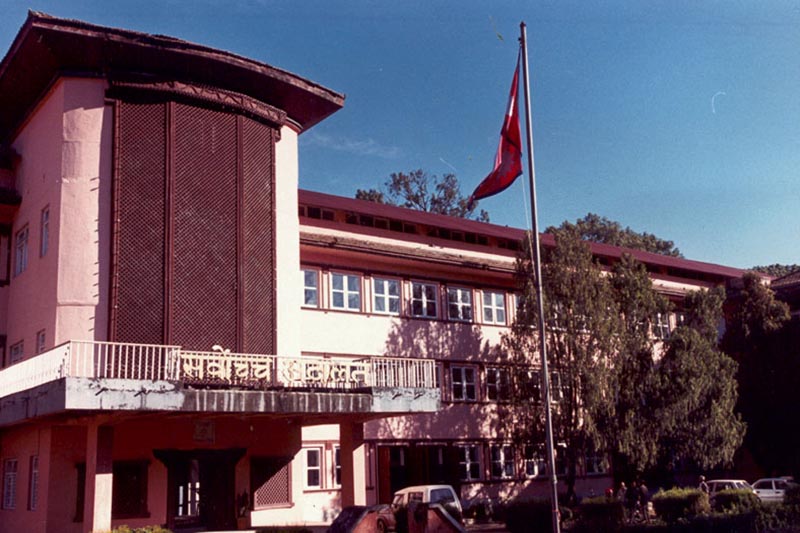Harmful chemicals law not enacted despite SC order
Kathmandu, September 22
More than a year ago, the Supreme Court ordered the government to regulate and control the sale, distribution and import of sulphuric acid and other harmful chemicals, but no law has been enacted in this regard.
A division bench of justices Om Prakash Mishra and Tej Bahadur KC had issued a writ of mandamus on 9 August 2017 as demanded by Advocate Shashi Basnet and others associated with Justice and Rights Institute Nepal. The petitioners had sought enactment of laws to regulate sale and distribution of acids and free treatment to acid victims.
Spokesperson for the Ministry of Commerce Navaraj Dhakal said his ministry was ready to comply with the SC order, but it had not received a copy of the court order yet. Assistant Spokesperson of the SC Nagendra Kalakheti said the court had delayed prepartion of the full text of the verdict largely due to deployment of SC under-secretaries for poll duty for almost six months. “We will prepare the full text in two to three months,” he added.
Advocate Basnet told THT that in the last 12 years around 16 women had suffered acid attack across Nepal. “We have not been able to follow up on the SC verdict because it has not prepared full text of its verdict,” she said. “One can easily buy sulphuric acid and other lethal chemicals in the market.”
Narayan Prasad Dhakal, director general of Department of Drug Administration, said his office had prepared a draft bill to regulate and control sale and distribution of harmful chemicals after consulting stakeholders, particularly officials of the ministries concerned. “Only those who have permission from the government to bring sulphuric acid and other such chemicals should be allowed to sell and distribute them,” he said.
Dhakal said a new law also needed to be enacted to foil the danger of chemical attacks by terrorists. Multiple sectors such as business, health,
industry and agriculture that use various types of chemicals should work in tandem to control misuse of chemicals, he argued.
Advocate Basnet said if buyers were made to fill a form and leave their identity details at the store while buying sulphuric acid and other lethal chemicals, that could significantly curb acid attacks. “Criminals would not be able to carry out such attacks without being detected,” she added.
She said the new penal code’s provision of providing compensation to the victim equal to the fine amount (Rs 500,000 for disfiguring the face) was not enough given the physical and emotional pain the victims suffered in their lives.
Basnet said Bangladesh succeeded in reducing acid attacks by 15 per cent after enacting new laws to control their sale and distribution.
AIG Pushkar Karki, who had overseen the Om Bahal acid attack case, said only those who could justify purchase of sulphuric acid or other such chemicals should be allowed to buy them. “School curriculum should also include lessons against acid attack because these days parents
do not monitor their children. They do not know where their children meet their peers and how they interact,” he added.






